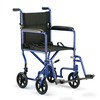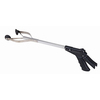Things to Consider Before Adopting a Pet
Posted on
For many older adults, mobility limitations, health issues and low energy can keep them from the social engagement they once enjoyed. Especially in seniors who live alone, social isolation can lead to loneliness, depression and poor physical health. Pet therapy has been shown to benefit seniors by improving depression and anxiety symptoms, increasing self-care, and even improving heart-health. It turns out giving and receiving unconditional love is literally good for your heart!
If you find yourself needing a little companionship, you might consider adopting a pet. A dog or cat is the perfect roommate that won’t take up all your space or independence and will provide you with comfort and something cuddly to look after. If you do decide to adopt a pet, here are a few things you should do to get prepared for the new experience, to make sure you are ready to handle the responsibility of a new pet.
Find Out How Big Your New Pet Will Become
This mainly pertains to dogs but there are some breeds of cat that can also become very large. You’ll want to be sure that any crate, pet bedding, harness, collar, and protective clothing are all the right size. You also need to know if the pet will become too large to be comfortable in your home.
All puppies are adorably small, but some grow up to be quite large, quite fast. If you're getting a puppy, make sure you are getting a pet from a reputable source that is honest with you about the development of your pet.
What Kind of Pet Will Work For You?
It is very important to research different breeds’ characteristics and interact with prospective adoptees to get a feel for their energy levels and personality. If you want something to mostly cuddle, don't get the energetic cat that is running around and chasing everything. Think about the personality and what you're expecting from a pet, and find the right one for you.
What Kind of Food Does Your New Pet Eat?
Some pets need special food and it can be expensive or difficult to find. Get the information ahead of time, price out the type of food you’ll need, and find out if you’ll need to travel to get it.
You may also be able to have what you need delivered if needed, but make sure you know the process needed for this. Always have have an emergency supply of food stored away - if you can put it in your emergency preparedness kit even better.
Pets need consistency when it comes to food, running out of it and replacing it with a different brand or type suddenly might not go over so well.
Is There a Good Veterinarian Nearby?
Your pet will need regular checkups and there could come a time when they need more specialized care or they get sick. You’ll need to know where the veterinarian is, if their prices are affordable to you, and how far away they are.
It’s also prudent to find out if there is an emergency vet nearby in case your pet needs urgent care outside of the vet’s regular office hours.
Will You Be able to Walk it?
If you get a dog, it will need regular walks daily. If you have restricted mobility going out every day, several times a day might not be feasible. That doesn’t mean you should not get a dog, just plan for hiring a dog walker or arranging with family members and friends a consistent walking schedule.
If you have limited mobility, but are still active enough for short walks, going out for casual walks with your dog will be a nice incentive to get regular exercise.
Will They Be Alone All Day?
If a dog can’t be walked, it can be tempting to just leave it in your garden. However, do not leave your dog unattended. Do not forget that a dog is a social animal that should not live in a garden because they need their 'pack' or 'family' to feel completely happy and secure.
A dog that is constantly alone and isolated is not only susceptible to stress and anxiety, but a host of diseases that can lead to serious behavioral problems. Having a dog does not just mean having it live in the garden.
Learn About Your Community’s Pet Restrictions
If you're living in a senior living community, apartment building, or other housing community, there may be restrictions about what kinds and number of pets you’re allowed to have in your home. Check for these restrictions, especially if there are specific breeds or sizes of pets not allowed.
Do You Have Help From Your Personal Support System?
If you have to travel and your pet can’t come with you, who will take care of them? Talk to your personal support system to be sure someone will be around to take care of your pet if you need to be gone all day or if something unexpected comes up.
Another good idea is to check around your area for prices and availability of professional pet sitting services. This way, if the people in your life aren’t able to help, you’ll always have a backup.
Will Your Pet Need Training Classes?
Some pets have behavior issues or they’re simply younger and need some guidance to be able to behave properly inside your home. Find out from the pet adoption service if this will be necessary before you take your pet home. If it is, you’ll need to find the right services and make sure they’re affordable and accessible.
Some training facilities will also help you train your pet to be a therapy animal. If this is something you want for your pet, ensure you get the proper training and licensing before you bring them around others.
What Happens If You Need to Move?
While with the right equipment it is possible to live longer than ever in your own home, sometimes events still happen that mean you have to move. Whether it’s to an assisted living facility or with a family member, they might not let pets in or want to deal with that responsibility. Make sure you have a plan for your pet if you need to be separated.
Enjoy the Unconditional Love of Welcoming a Pet Into Your Household
Being well prepared is only the first step to welcoming a new pet into your household. The next is getting to know your pet. Let them have some time to explore their new home before you introduce them to anyone else. Become acquainted and give your new pet time to trust you.
Before you know it, you’ll be playing with your new pet and enjoying every minute of having them in your home. Invite your friends and family to see your new addition or enjoy them all by yourself. You’ll come to know that having a pet is like making a new best friend. Enjoy!


















